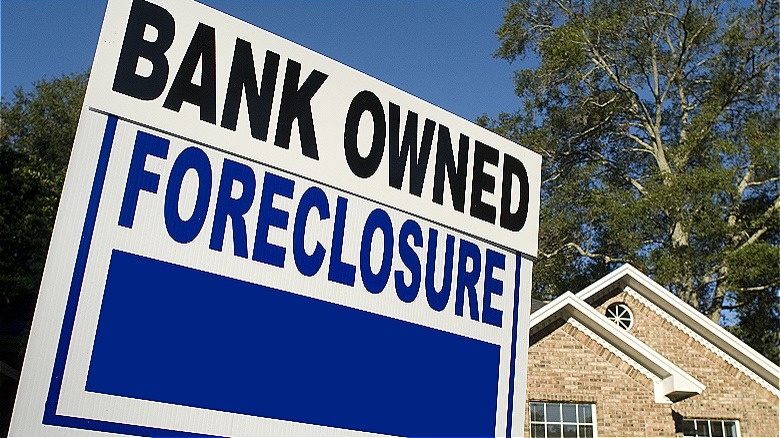Why You May Want To Think Twice Before Getting A Home Equity Loan
Whether you're struggling financially in the wake of inflation or you're looking to make a large purchase, you might find yourself wondering if a home equity loan (aka second mortgage) is right for you. While, on the surface, taking out one of these loans can seem like a great way to take advantage of your home's existing value (especially if you're looking for fast cash), there's a LOT to know about this type of loan. Not only is it confusing to determine if home equity loans are tax-deductible, but there are also some serious risks you should consider before pursuing one of these loans.
For starters, your home's equity is the monetary amount your property is worth minus whatever amount you still owe on your mortgage. This means the more you have paid off your mortgage, the more equity you have (in other words, you've owned the house for a long time). This can mean that a home equity loan might not be an available option to you, especially if you've only just recently purchased your home.
If you do have a sizable enough equity, though, then taking out a home equity loan allows you to essentially borrow on that amount. Depending on the lender, you're generally able to borrow up to a certain percentage of your existing equity (most lenders allow you to borrow 80% to 85% of your home's appraised value). These loans function similarly to mortgages and often have long-term repayment periods of around 20 years.
Downsides
For starters, there are three main ways to take out your home equity: a home equity loan, a home equity line of credit, or a cash-out refinance. While the individual terms and flexibility of these loans can vary, all three options carry similar risks — the biggest being that your home is collateral.
An important consideration when deciding between a home equity loan and another loan option is what the money will be used for. For instance, if you're looking to offset cash-flow problems or make a large purchase like a new car, it's better to steer clear of home equity loans. This is mainly because moving your debt around without a repayment solution is financially dangerous, and it could cost you even more than your existing debt. Plus, by using a home equity loan as a quick fix, you're putting your home on the line without the guarantee of a better financial future.
The fact that this loan type is attached to your home is easily the most dangerous element of a home equity loan because failure to pay it on time can leave you facing foreclosure. Similarly, using your home equity to purchase additional real estate or make an investment can also put you in a difficult spot given the lack of liquidity in real estate. Another important thing to keep in mind is the potential for a market downturn, which could cause your property value to drop. This could leave you with a borrowed amount that exceeds the worth of the home.
Home equity loans aren't all bad
Despite the risks, there can still be some beneficial reasons to pursue a home equity loan. However, keep in mind they're best used for specific situations. For instance, using a home equity loan for any project that puts money back into the property (like, say, home improvements) not only makes sense but can also be a great way to boost your home's value. Further, a perk of this loan type includes the potential for a tax break. According to the IRS, interest paid on home loans or lines of credit could be tax-deductible depending on how you spent the funds. This is connected to another perk of home equity loans, which is that you typically have more flexibility to spend the funds how you want unlike other loan types.
Another significant perk is lower interest rates. (However, it's important to understand how, exactly, home equity loan interest rates are calculated). Since this type of loan is secured against a property, lenders have more of a guarantee. This makes them more willing to offer competitive rates on home equity loans compared to other loan types (yet, note that this second mortgage will more than likely have a higher interest rate than your original mortgage).


